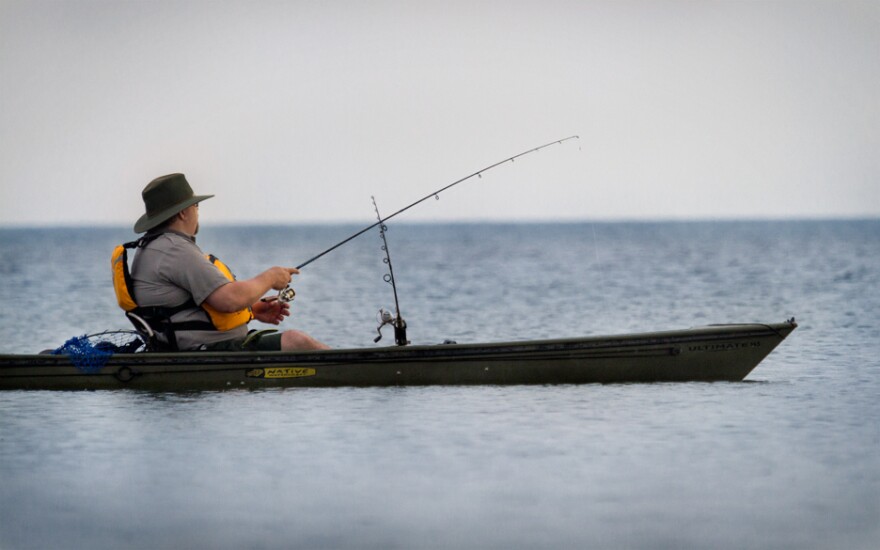Freshwater lakes provide many things: water for crops, recreation, power plants, and of course, fish. But a new study argues we don’t value those fisheries enough.
The study is from Michigan State University and the U.S. Geological Survey.
Andrew Deines is the lead author. He says we know more about the fish we catch from oceans than we do from freshwater lakes.
“Freshwater fisheries pose a unique problem, in that there’s 117 million different lakes around the world,” he says. “But most of those lakes are small, and most of those lakes are difficult to access, not only for fishermen, but especially for people who are trying to monitor how much fish would be coming out of any particular lake.”
Deines says he and his team developed a new way to estimate fish harvests from the world’s inland lakes. That rang in at 8.4 million tons for the year 2011.
The USGS explains the team's approach:
Global statistics for inland fisheries harvest are compiled by the FAO. Global statistics for inland fisheries are highly uncertain and sometimes underestimated due to underreporting, driven partly by limited resources for accurately measuring harvests in many countries. As a result, the contributions of inland fisheries to food security and dietary protein are often overlooked. The scientists assessed productivity of lakes larger than about 0.04 square miles, worldwide. They modeled lake size, potential fishing activity based on human population density and remotely sensed estimates of chlorophyll, a measurement of algae and a building block of lake food webs.
*Correction: The story has been updated to reflect the correct number of lakes in the world: 117 million.






